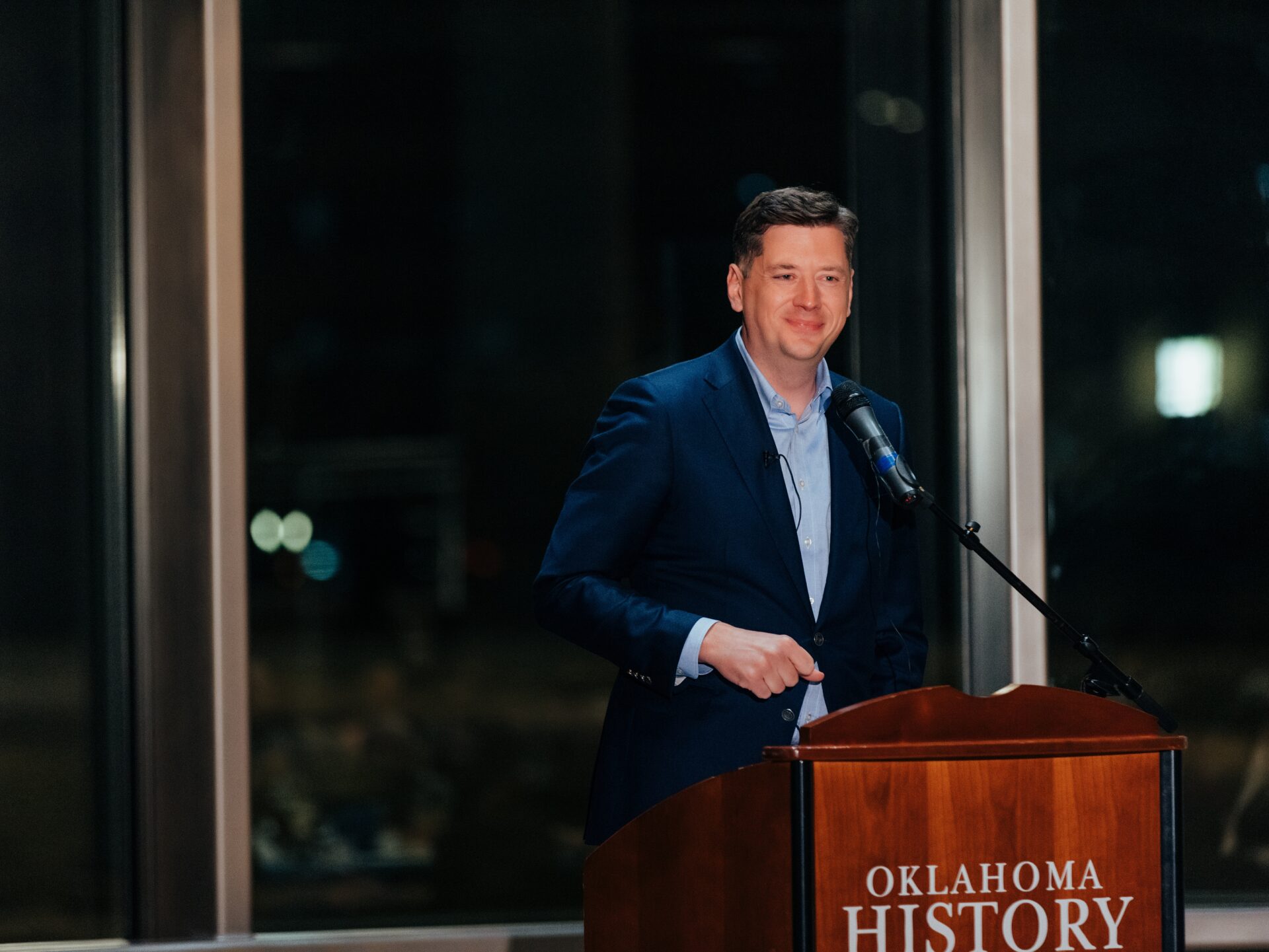Much like the State of the Union given by the President or the State of the State presented by our governor earlier this year, cities also host a “state of the city” address. These addresses serve to update residents on the status of the state (or city) and inspire them for what plans may lie ahead.
On July 20, the Greater Oklahoma City Chamber of Commerce hosted the annual State of the City by Oklahoma City Mayor David Holt. Held at the OKC Convention Center downtown, it was a flashy event with gifts sponsored by the Thunder for attendees.
After a welcome and introductions from the Chamber, Mayor Holt took the stage and began outlining and celebrating the “unstoppable momentum” of the city of Oklahoma City. Ranking as America’s 20th largest city and 6th fastest growing top 20 city, Mayor Holt highlighted that “the economy is still strong, [our] unemployment is still low”. He then discussed the progress of MAPS 4 projects in the context of OKC as a “mission-focused city” completing a to-do list.
He celebrated various projects in areas of public transport, the Better Streets, Safer City initiative and raises for OKC Fire and Police Department. He lauded the completion of many of the MAPS 3 that were part of the mission to invest in quality of life for residents.
Other shoutouts included the new Asian Chamber of Commerce, Mexican consulate, the reestablishment of the Human Rights Commission and more. With MAPS 3 projects wrapping up, he moved into discussing exciting initiatives of MAPS 4 that continue to invest in “quality of life” and focus on trails, community centers, arenas, ballparks and more. The new Fairgrounds Coliseum, Bus Rapid Transit lines, new building for Palomar-Family Justice Center, the Clara Luper Civil Rights Center and “truly affordable housing” were some of the upcoming initiatives briefly mentioned.
This transitioned the State of the City address into more of a “state of the arena” conversation, which focused on OKC’s competitiveness as a “global city” thanks to our major league professional sports teams, the NBA team in particular.
Currently, the Paycom Arena hosts the Oklahoma City Thunder, whose long-term contract expired and is under a three-year agreement (until 2026). Their possible continuation in OKC hinges on the creation of a new arena. Mayor Holt provided a history of arenas in our city and provided a view of them as an integral to the growth and aspirations of the city.

The Paycom Arena is one of the smallest and cheapest arenas in the NBA at $200 million, with other cities’ arenas construction ranging from $475 million to $2 billion. Holt emphasized that many larger cities were vying for an NBA team, and other cities that used to have one and did not invest have diminished in their growth. He painted a picture that to maintain our status as a “global city” and continue our “renaissance” a new arena is crucial.
The current proposed plan has no details available yet other than it would use “leftover” money from MAPS 4 and would involve investment from Thunder ownership. The joint agreement is targeted to be completed by the end of summer.
While the case for a new arena dominated the address, other briefly mentioned topics caught our eye. Despite Mayor Holt’s focus on quality of life in OKC, affordable housing was mentioned in a passing moment, healthcare not at all, and other topics like homelessness and unemployment were glossed over as if they had been solved.
It is undeniable that OKC has grown, and MAPS has made our city more beautiful and accessible, but we are still far from being an equitable, safe, successful city for all. Mayor Holt has taken bold steps to encourage and celebrate diversity in Oklahoma City, and we are grateful for leadership that seems more inclined towards listening to the needs, fears, dreams, and hopes of all corners of our community. We are certainly heartened by the expansion of affordable transportation in the form of the BRT system, which will connect northwest OKC with the city center in an unprecedented way. However, we are still in the midst of a housing crisis, with nearly a quarter of OKC residents qualifying as “rent burdened” and with over 1,400 people counted as experiencing homelessness in a single night. With city councilors feeling slighted by the arena talks, wishing for more focus on less-flashy concerns, it will be curious to see how major investments proceed in our city and if they keep in mind the more pressing needs of our most vulnerable neighbors.
Image attribution: https://upload.wikimedia.org/wikipedia/commons/thumb/1/1e/Paycom_Center%2C_Oklahoma_City_%28Sep._2021%29.jpg/1024px-Paycom_Center%2C_Oklahoma_City_%28Sep._2021%29.jpg

